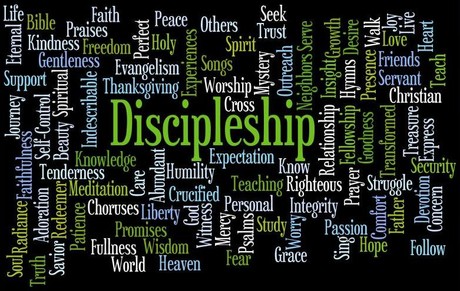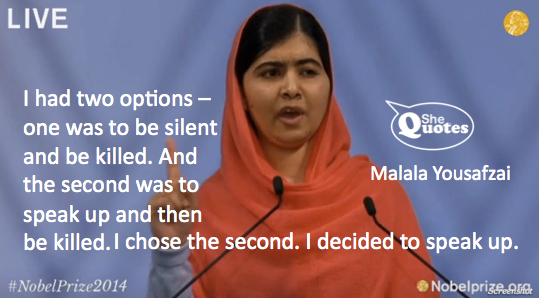
– 04th of September 2022-

Gospel reading: Luke 14:25-33
vs.25 Great crowds accompanied Jesus on his way and he turned and spoke to them.
vs.26 “If any man comes to me without hating his father, mother, wife, children, brothers, sisters, yes and his own life too, he cannot be my disciple.
vs.27 Anyone who does not carry his cross and come after me cannot be my disciple.
vs.28 And indeed, which of you here, intending to build a tower, would not first sit down and work out the cost to see if he had enough to complete it?
vs.29 Otherwise, if he laid down the foundation and then found himself unable to finish the work, the onlookers would all start making fun of him and saying,
vs.30 ‘Here is a man who started to build and was unable to finish.’
vs.31 Or again, what king marching to war against another king would not first sit down and consider whether with ten thousand men he could stand up to the other who advanced against him with twenty thousand?
vs.32 If not, then while the other king was still a long way off, he would send envoys to sue for peace.
vs.33 So in the same way, none of you can be my disciple unless he gives up all his possession.”

************************************************
We have four commentators available from whom you may wish to choose.
Michel DeVerteuil : Michel, a Trinidadian Holy Ghost Priest, was director of the Centre of Biblical renewal .
Thomas O’Loughlin: Thomas is on the theology faculty of Nottingham University
Sean Goan:Sean studied scripture in Rome, Jerusalem and Chicago and teaches at Blackrock College and works with Le Chéile schools.
Donal Neary SJ: Donal is editor of The Sacred Heart Messenger *********************************************************************
Michel de Verteuil
Lectio Divina The Year of Luke
www.columba.ie
General Textual comments
The passage is in three movements:
– verse 25: the framework of the passage;
– verses 26, 27 and 33: the challenge to radical discipleship; and
– verses 28 to 32: the practical approach to discipleship.
Discipleship of Jesus takes many forms and we interpret this passage in the light of the particular form of discipleship to which we have committed ourselves – marriage, parenting, friendship, career, religious life or priesthood.
We think of other commitments we and others make: to social change for example – bringing about reconciliation between ethnic groups or religions, or reforming economic, educational or political systems, locally or internationally.

Jesus’ language is startling at a first reading, harsh even, for example its stress on “hating” and the need to give up “all one’s possessions“. Our meditation must feel the passion of Jesus as well as uplift us. The secret is to let the passage speak to our experiences of grace, of Jesus alive in the world today, and in each of us too, to the extent that we are his presence for others. It will also be a call to conversion of course, because we are often not like him.
For example, the passage invites us to celebrate those people who when we were embarking on a career, joining a political movement, getting married, came straight with us. They told us: don’t enter into it unless you feel willing and able for the sacrifices involved. Their words seemed harsh at the time and in any case we were so committed that we didn’t pay them much heed. Now we are deeply grateful to them. They were Jesus at work in our lives.
Note that Jesus “turned and spoke to them“. He speaks from personal experience. The choices he is asking from his followers he has made himself – and is glad he did.
Many leaders today (even in the Church) are afraid of losing their followers, the “great crowds who accompany them” so rather than challenge them, they feed them with empty slogans which pander to their worst instincts, for example their feelings of superiority to others. Or else they make demands on others that they do not live up to themselves. We celebrate leaders like Jesus.
We can shift the focus of our meditation from the person of Jesus to the process of decision making or coming to maturity which he calls us to. We all experience turning points in our lives, when in response to an inner call, we make choices which bring us to a new level of maturity. These moments of grace always involve finding our true identity by renouncing attachments – to people, projects, ideas, institutions. We decide to “carry our own cross,” to discover our own destiny, the greatness to which we have been called.
So long as we derive our identity from others, even those closest to us, we remain immature. Modern psychology has reinforced this teaching of Jesus:
“Before individuality can come there must be psychological differentiation. The unconscious identification with others must be broken, and each one must recognize his or her uniqueness.” … John A. Sanford, Jungian analyst and author
The journey to maturity is on-going. As children, we find our points of reference in parents and possessions. As we get older we naturally transfer our dependence to other intimate relationships,
– from mother and father, brothers and sisters,
– to friends, teachers, spouse, children,
– maybe work place, community, church, institution – a “corporate self-image.”
All the time we remain dependent on someone or something for our identity. The moment of maturity comes when we take the risk of stepping out into the unknown – we “hate our own life too.” Up to then we are not mature, “cannot be disciples”.
– Maturity brings freedom in our relationships,
– freedom from what others think of us, and
– freedom to let others discover who they are, apart from us.
Remaining faithful to our commitments requires many renunciations.
– familiar forms of prayer;
– childhood images of God;
– rules and regulations;
– identity that comes from belonging to a group, a movement, an institution, a political party;
– comforting passages in the scriptures;
– inward-looking cozy communities;
these can all be “possessions” and eventually we realize that we must “give them up”.
 We celebrate heroes we have known who found the courage to “give up” some deep-seated “possessions,” taboos and silences they once clung to out of fear or a false sense of loyalty:
We celebrate heroes we have known who found the courage to “give up” some deep-seated “possessions,” taboos and silences they once clung to out of fear or a false sense of loyalty:
– battered women give up their sense of shame and share their stories with others;
– victims of rape, incest, or child abuse denounce their abusers;
– parents seek help for crippled, deformed or retarded children they had been hiding in their homes;
– citizens take the risk of going against their governments’ oppressive policies
– church members speak out against injustice in their communities
– an Israeli speaks up for Palestinians,
– a Northern Ireland Catholic for Protestants or visa versa,
– a Sicilian against the mafia.
The two parables in verses 28-30 and 31-32 are very touching, but we must interpret them according to the spirituality of Jesus. They must not make us afraid to take risks for example, or weigh us down with guilt at our failures. Situate the parables in the context of Jesus “turning around” and sharing his experience with compassion, remembering his temptations in the wilderness.
We must feel the pathos of the “onlookers all starting to make fun of the man.” It is not condemning but saying, “I so want to spare you that”. But there is also the hint that we cannot escape such mocking. We remember the many references to “those who scoff” in the psalms, and the chief priests mocking Jesus on Calvary because he “started to build and was unable to finish”.
The parable of the king reminds us of moments when we feel discouraged and unable to continue in our commitments. The odds seem too great, we become aware that we have twenty thousand men against us whereas we only have ten thousand, and so we are tempted to “send envoys to sue for peace” – like Jesus at Gethsemane. But God sends us some Jesus – or an angel – who reminds us that the commitment we made really requires that we “give up all our possessions”
The journey to discipleship is truly a wonderful adventure. We ask God to continue sending Jesus to lead us and all humanity along the way.
Scriptural prayer reflections
Lord, we remember with gratitude those people who,
as we were walking behind them,
turned and spoke words that seemed harsh at the time, telling us
– to break ties;
– to step out in faith;
– to harden our hearts;
– not to be afraid to cause pain to the people we love.
By their words and example, they gave us a new sense of freedom,
opened within us new sources of creativity,
helped us to be true to our deeper selves.
“We cannot discover new oceans unless we dare to lose sight of the shore.”
 Lord, to discover new oceans, our young people must often
Lord, to discover new oceans, our young people must often
let go of father, mother, brothers and sisters,
yes and their own image of themselves too.
We thank you for great parents and teachers
who when their children want to continue accompanying them,
turn and speak to them as Jesus did,
telling them that they must not be afraid to hurt those who are dear to them,
but must take up their own crosses so that they can be truly his disciples.
Lord, we pray for young people.
So often those they accompany on their way lead them in wrong directions;
they are subjected to pressure from peer groups, consumerism, materialism, fads and fashions.
 Send them leaders like Jesus who, as they walk ahead of them,
Send them leaders like Jesus who, as they walk ahead of them,
will turn and challenge them
– to become the great people you want them to be,
– to harden their hearts so that they can follow their own path,
– not to be afraid to give up their feelings of security and assume their responsibilities.
Lord, as we look back on our lives we see projects that we started,
for which we laid a foundation,
and which, later, we found ourselves unable to finish:
– a marriage broke up;
– we dropped out of school or college;
– we left the religious life or the priesthood;
– gave up a political commitment that was too demanding;
– stopped meditating.
We hear voices, some of them within our own hearts, making fun of us,
saying, “Here are people who started to build and were unable to finish”;
and indeed we had not sat down and worked out the cost
to see if we had the resources to complete what we had begun.
But we know that you are there with us, and that the need to achieve is one
of the possessions you want us to give up.
Lord, we think and pray today of those who are discouraged:
– parents bringing up their children;
– employers trying to work for good industrial relations;
– leaders challenging a church community to become involved in the secular world.
They feel like a king who is marching out with ten thousand followers and having
to stand up to an opponent who is advancing against him with twenty thousand;
they are inclined to sue for peace even though their opponents are still a long way off.
Send them Jesus to remind them
that unless they are willing to give up the desire for quick results,
and carry the cross of failure,
they cannot be his disciples.
********************************************************
Thomas O’Loughlin,
Liturgical Resources for the Year of Luke
www.Columba.ie
Introduction to the Celebration
 We have gathered here because we are disciples of the Lord Jesus: we have chosen his way as our way. Today he reminds us that this is no easy choice for his way led to the cross. He reminds us: ‘Whoever does not bear his own cross and come after me, cannot be my disciple.’ Discipleship embraces every aspect of our lives. Discipleship means that we have to plan for the best way to live our lives in the light of his truth. Yet, we all fall short of that way, we follow other paths, we avoid the cross, we think of the immediate rather than the goal of life. So as we gather for this meal of discipleship, let us renew our commitment to the way of the Lord and ask pardon for our deviations from it.
We have gathered here because we are disciples of the Lord Jesus: we have chosen his way as our way. Today he reminds us that this is no easy choice for his way led to the cross. He reminds us: ‘Whoever does not bear his own cross and come after me, cannot be my disciple.’ Discipleship embraces every aspect of our lives. Discipleship means that we have to plan for the best way to live our lives in the light of his truth. Yet, we all fall short of that way, we follow other paths, we avoid the cross, we think of the immediate rather than the goal of life. So as we gather for this meal of discipleship, let us renew our commitment to the way of the Lord and ask pardon for our deviations from it.
Gospel Notes
This section is found only in Luke (Mt 10:37-8 has a parallel only of vv 26-7) and brings the cost of discipleship before us in a stark way that seems at odds with the notion of ‘the gentle Luke’. However, this section repeats what Luke has already written at 9:23-27, 57-62.
That one can embark on discipleship and yet fail is brought out by three images:
– the foolish builder,
– the unwise king,
– and the salt that has lost its taste (these last two verses have been omitted in the lectionary and this has given the text a well-focused and rhetorically more satisfying ending; these final verses of ch 14 are, in any case, almost certainly an interpolation at that point) all illustrate that it is easy to take up a life-demanding task but it requires wisdom / fortitude! dedication to complete it.
Homily Notes
1. We live in a world of ‘communication’: phones, faxes, emaiI, facebook, text-messages, radio, television, internet. Never” has there been so many ways to ‘communicate’ or so many messages travelling around. Everywhere there is someone who is trying to plant an idea in your eye or ear. “
2. However, how many of these messages are actually direct and unmediated human speech? Information comes through’ media, an actual human voice communicating is rare: face to face seems to be for chatting. Indeed, apart form boardroom style meetings and classrooms, there is almost nothing that is communicated without first being either typed or committed to an electrically driven machine.
3. Now consider the homily: it is the only time in common experience when people are spoken to directly as a group. Just ask people when was the last time they went somewhere and actually listened to a speech? Politicians may speak of going on the stump or the hustings, but what they actually do is go before a specially chosen audience and then deliver sound-bites for the TV news and photo opportunities.
4. So when you actually get up and preach you are engaging in what is now a very rare form of activity in the developed world. It is personal, direct, and bare of defences, images, and games. From this two things flow:
First, we should remind our congregations just how rare it is for something to be set out without the possibility for spin and razzmatazz that modern media allow. Yes, it may not be slick, but there are no hiding places when all you have is a voice and a message.

Second, this direct human communication is a rare event today, so capitalise on it and do not block it. We block it when a homily becomes a written message delivered orally: it should be the well-thought out reflections given ‘in living voice’ (viva voce) with the anxiety and sharpness which only ex tempore speaking possesses.
3.Equally, do not block it by standing behind a psychological security curtain made up of an ambo or lectern: there should be no physical object between you and those you address. Of course, many argue that this is beyond their abilities – if that is the case then preaching is probably not your vocation and you should ask why you are attempting it: there is probably someone in your community who does have this calling and you should be empowering them rather than seeking to do it yourself.
4. But few cannot preach without notes or lectern, it is simply a matter of practice. So here is a simple formula.
5. Point out to your audience that you are speaking directly to them without the benefits of all the gimmicks and training of those who try to get their money by selling them things or their support by persuading them of ideas with all the skills of the ‘ communications industry’.
Then ask them what they think about what has just been read: that loyalty to the Christ is supposed to be paramount in their lives and that they must work with deliberation at being disciples in the same way they set about other major tasks in life.
Give a moment – around 30 seconds – to let the question settle in.
Then ask: how many of us believe this is the truth?
Give another moment to let this question settle.
Then conclude by pointing out that if you believe then you have to draw conclusions for how you live your life.
*********************************************
Sean Goan
Let the Reader Understand
www.Columba.ie
Gospel Notes
This is one those gospel passages that makes us stop in our tracks. The idea of hating anybody is far removed from the message of Jesus, so how come today he tells us that we cannot be his followers if we do not first hate our parents and other family members?
It might be helpful to remember that in the ancient world hyperbole or exaggerated speech was an accepted way of making a point and that clearly Jesus is using hyperbole when he says this. Still it seems like a counter productive way to present your case. The parables that follow this hard saying help to explain exactly what Jesus meant. He wants everyone to know that being his follower cannot be viewed as some kind of optional extra and so, before we decide for him, we should sit down and think about what it entails and then ask ourselves, ‘Am I prepared to commit myself to that extent?’
Reflection
 Our following of Christ can easily become an unreflective adherence to a faith into which we were born. We may continue going to Mass merely out of habit or even fear. However, today it is as though Jesus turns around to us and says: ‘This is not for the fainthearted. Following me is not about having things easy with God on your side. It is all about forgetting yourself and that, my friend, is a hard road.’ From time to time we need to be shocked out of our complacency and today’s invitation to make our own the wisdom of Jesus aims to do just that.
Our following of Christ can easily become an unreflective adherence to a faith into which we were born. We may continue going to Mass merely out of habit or even fear. However, today it is as though Jesus turns around to us and says: ‘This is not for the fainthearted. Following me is not about having things easy with God on your side. It is all about forgetting yourself and that, my friend, is a hard road.’ From time to time we need to be shocked out of our complacency and today’s invitation to make our own the wisdom of Jesus aims to do just that.
*********************************************
4. Donal Neary S.J.
Gospel reflections for Year C: Luke
www.messenger.ie/bookshop/
Created Good
Giving up possessions is a huge demand of Jesus, It can be misunderstood and cause grief. What Jesus means is that we identify what it is in us that may block us being his disciples. Wealth may provide comfort status in society or the Church/ security, or whatever centres our concerns/ and whatever keeps us from acting justly with and for others.
Created in the likeness of God/ we are created good. In each of us is the desire to nourish what is good and best in us. We wish to do the same for our children/ our pupils or anyone in our care.
We nourish the good in ourselves by prayer, community by good deeds and an honourable way of life, We watch the example of Jesus and listen to how he teaches us in his stories. Today he asks us to know ourselves, just like the man building a tower plans what he has and what he can do.

Goodness, like beauty, is a gift of God
Our goodness in life is a gift from God. We find goodness also in each other. Good people make good people better! Saints we like show us a way to God and inspire us, and even help us. The gospel is full of people trying to do their best and learning with fresh starts and after their mistakes how to follow Jesus.
Goodness is vulnerable. We can try our best and fail. We make promises that don’t last despite our best efforts. In the eyes of God goodness is in what we do and in what we try to do. God sees the goodness of the heart.
Lord give us a desire for the good in our lives
and help us live by your good gospel.